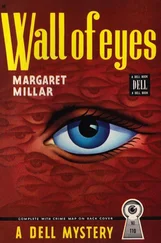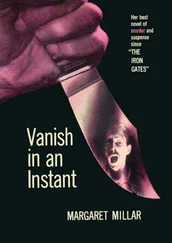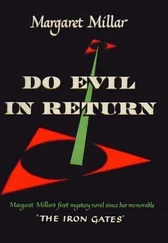Belasco hesitated. “Well, I didn’t exactly—”
“Did you ask Mr. King to pick up a cook? Yes or no.”
“No.”
“I have no further questions at this time.”
“You may step down, Mr. Belasco,” the judge said. “Before Mr. Donnelly begins his cross-examination, we will take the afternoon recess of fifteen minutes.”
The jurors filed into the jury room, and most of the spectators into the corridor. The judge remained where he was, summoning the bailiff, Zeke di Santo, with a slight nod of his head.
The bailiff approached the bench, moving awkwardly for a young man, as though he were not yet used to the extra weight accumulated during a year of sitting in a courtroom.
“Yes, Your Honor?”
“What’s the matter with the air-conditioning?”
“It isn’t working, sir.”
“I’m aware that it isn’t working. Why isn’t it working?”
“I don’t know, sir.”
“Can you find out and do something about it?”
“Probably not. These matters seem to be in the lap of the gods.”
“Surely the gods have left us the capacity to open windows.”
“Yes, Your Honor. But that will mean an increase in traffic noises, which might prevent Your Honor from hearing things.”
“At the moment I’m not listening to anything except your fatuities... Speaking of hearing things, every now and then I hear a kind of low, humming noise. Have you noticed it?”
“Yes, Your Honor.”
“What is it?”
“It appears to be a low, humming sound.”
“I know that. But where’s it coming from and why?”
“I think it’s coming from the defendant, sir. He hums.”
“Why?”
“Maybe it’s because he’s happy.”
“Happy? Nobody in a courtroom is supposed to be happy. Are you happy, Di Santo?”
“I’m betwixt and between.”
“You look fairly happy. I observe you laughing at my jokes.”
“Oh, yes, sir. The loudest.”
“The loudest? Why?”
“I appreciate Your Honor’s sense of humor.” Also, I got a wife and kid to support.
The bailiff opened a window, and cool, noisy air pushed past him into the room as if it had been waiting all day to get in.
Di Santo felt the coolness with surprise. The morning had been crisp and clear, and at noon the weather had been like August. Now, in midafternoon, it was fall again with the fog drifting in from the sea, draping the tops of the tall Mexican palms so only the trunks were visible like haphazardly placed telephone poles.
He looked out and saw the courthouse pigeons taking shelter in the bell tower, and the solitary emerald green parrot, once somebody’s pet, gliding across the busy street like a flying traffic light. The bird was quiet for a parrot, probably because it had nothing to squawk about. From the pigeons it had learned to freeload, and it lived well on the handouts from a nearby restaurant and the contents of the lunch boxes and the brown bags of the office workers who ate in the sunken gardens, bologna sandwiches and hard-boiled eggs and pickles and pieces of fruit. It drank from the courthouse fountain and picked figs and hawthorn berries and pyracantha in season.
Di Santo envied that parrot. Nobody nagged it for eating too much; in fact, nobody knew how to tell whether a parrot was fat or thin except by weighing it, and this parrot was not about to be weighed. It had successfully resisted all efforts to capture it and flew merrily, fat or thin, from tree to tree, lunch box to paper bag.
Di Santo was not so lucky. His wife kept a scale in the bathroom and had pasted on the refrigerator door the picture of a fat man, an actor who had died quite young of a heart attack. For his birthday Di Santo’s wife had given him a membership in a health club, to which he paid a few halfhearted visits. He preferred bowling and beering with his friends. It seemed more sensible than lifting weights with his feet.
The courtroom was almost empty now. Donnelly and Cully King sat talking in whispers, and Eva Foster was still at the table she shared with Di Santo. She watched him cross the room with the same critical appraisal as his wife and the receptionist at the health club.
Di Santo knew what was coming, and to avoid it, or at least postpone it, he stopped at the water cooler.
Eva joined him there. “What did you have for lunch?”
“You know I never eat lunch.”
“How could you after that breakfast?”
“What breakfast? All I had was an orange. And maybe a piece of dry toast. That’s all my wife would give me.”
“So you went into McDonald’s and ate two eggs McMuffin. I saw you.”
“A guy has to have protein,” Zeke said. “I read in the Reader’s Digest that without enough protein the brain shrivels.”
“Your brain has already shriveled so you don’t have to worry about it. Do you want my honest opinion?”
“No.”
“Here it is anyway. When the judge retires, this courtroom will have a new presiding judge who’ll want his — or hopefully her — own bailiff. That will give you a chance to ask the sheriff for a more active job. You’re not burning off your calories. The only exercise you get is unlocking and locking doors and letting your belt out another notch. Wouldn’t you rather be outside in the open air, investigating things and chasing criminals?”
“No.”
“Why not?”
“They might chase me back.”
In spite of the open windows, the room was still hot and smelled of people under stress.
Donnelly addressed his client without looking at him. There was something about Cully King’s face, an innocence, even a sweetness, that was too disarming. It made him want to believe whatever came out of the soft, sensuous mouth or was expressed in the soft, sensuous eyes. Donnelly knew it was a mistake, this trusting. Clients lied, all of them, innocent or guilty. They tilted the truth, and it was his job to level it again.
“In our first conversation,” Donnelly said, “and in subsequent ones you told me that Belasco asked you to hire a cook for the Transpac.”
“He did. At least I had the impression he did. We talked about it.”
“When?”
“When I called him from Mazatlán. It’s in the log.”
“That he asked you to hire a cook?”
“No. But the call itself is logged.”
“Not the contents of it?”
“No.”
“Repeat the conversation.”
“There was the usual stuff, how are things going and all like that. Then he mentioned that he didn’t have a cook yet for the race. He’s a fussy eater, not the kind of guy who’d settle for beans and black pudding. Mr. Belasco has to have the best.”
“You’re veering away from the subject. Stick to what he actually said.”
“I already told you. He said he didn’t have a cook for the Transpac yet.”
“Did he say he wanted one?”
“Well, sure he wanted one. The cook’s very important in a race of any length. I got the impression that he wanted me to do something about it, try to get hold of one for him if the chance came.”
“And the chance came in the form of Madeline Pherson?”
“I thought it did. I mean, I thought I would be doing Mr. Belasco a favor by taking her on.”
“Come off it, Cully. You wanted a good screw.”
Cully considered this for a moment, then shrugged his shoulders. “Maybe. It sounds kind of disrespectful now, but at the time it was just natural. She didn’t look to me like the way Mr. Owen described her in his speech, all that church stuff and everything. And she didn’t order any Perrier water either. She had a double martini. I should know. I paid for it.”
“What was Mrs. Pherson wearing when she came into the bar?”
“I don’t know. I told you that before. I don’t know.”
Читать дальше
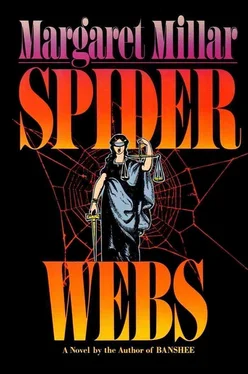

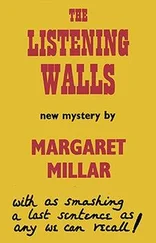
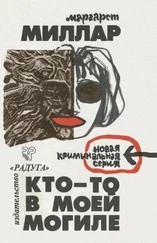
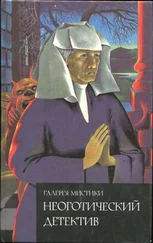
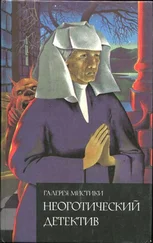

![Маргарет Миллар - Rose's Last Summer [= The Lively Corpse]](/books/384369/margaret-millar-rose-s-last-summer-the-lively-c-thumb.webp)
